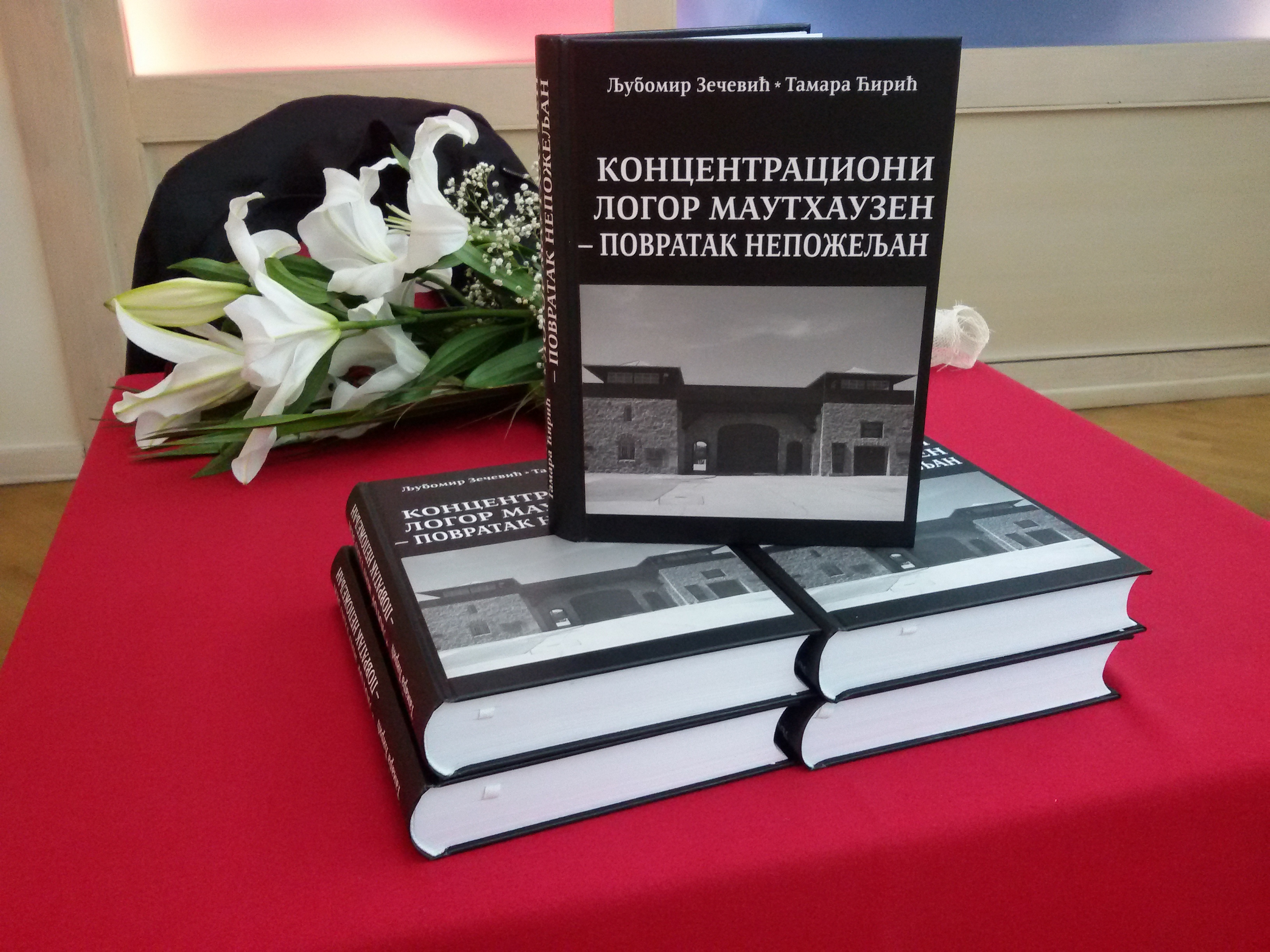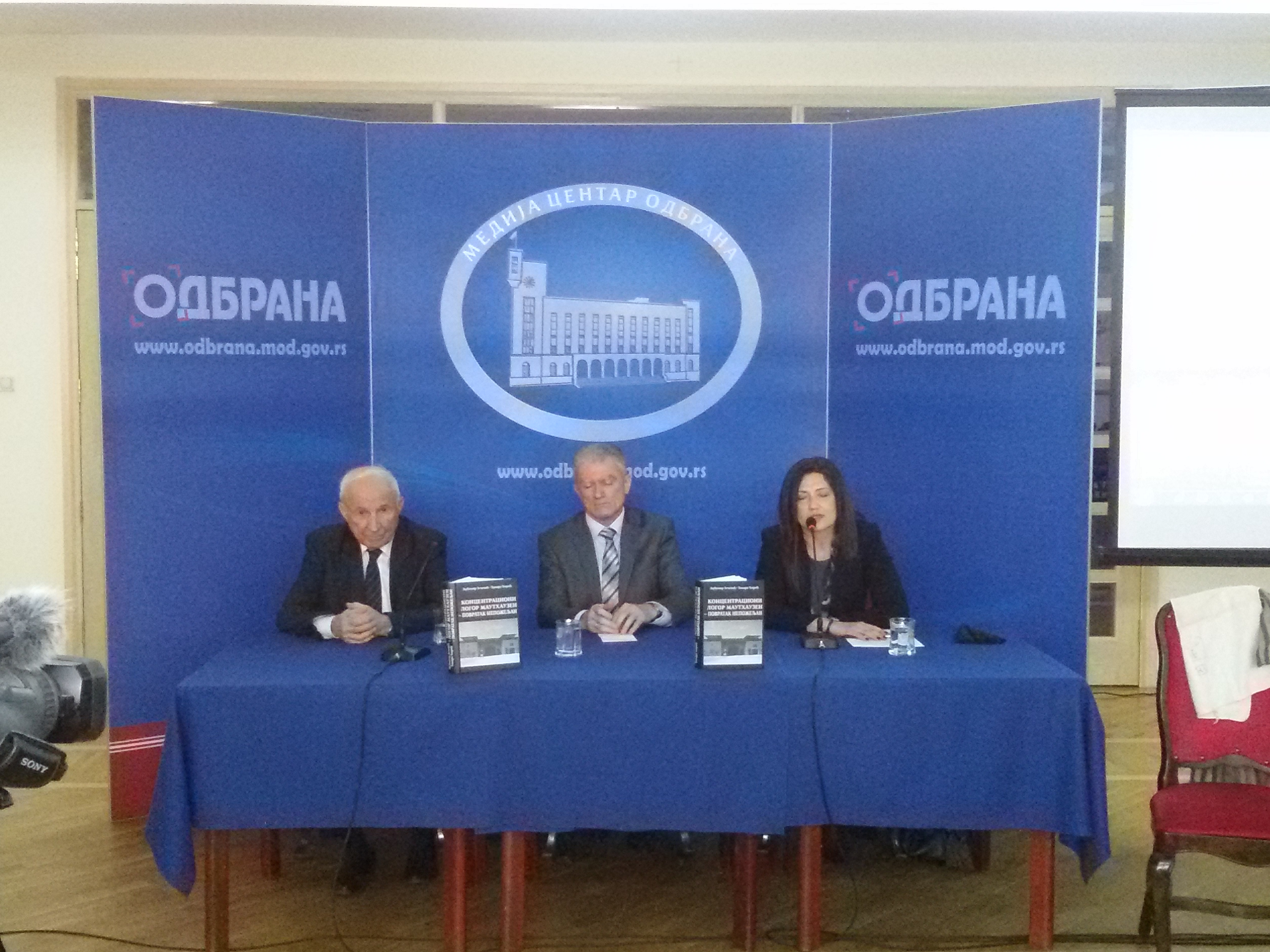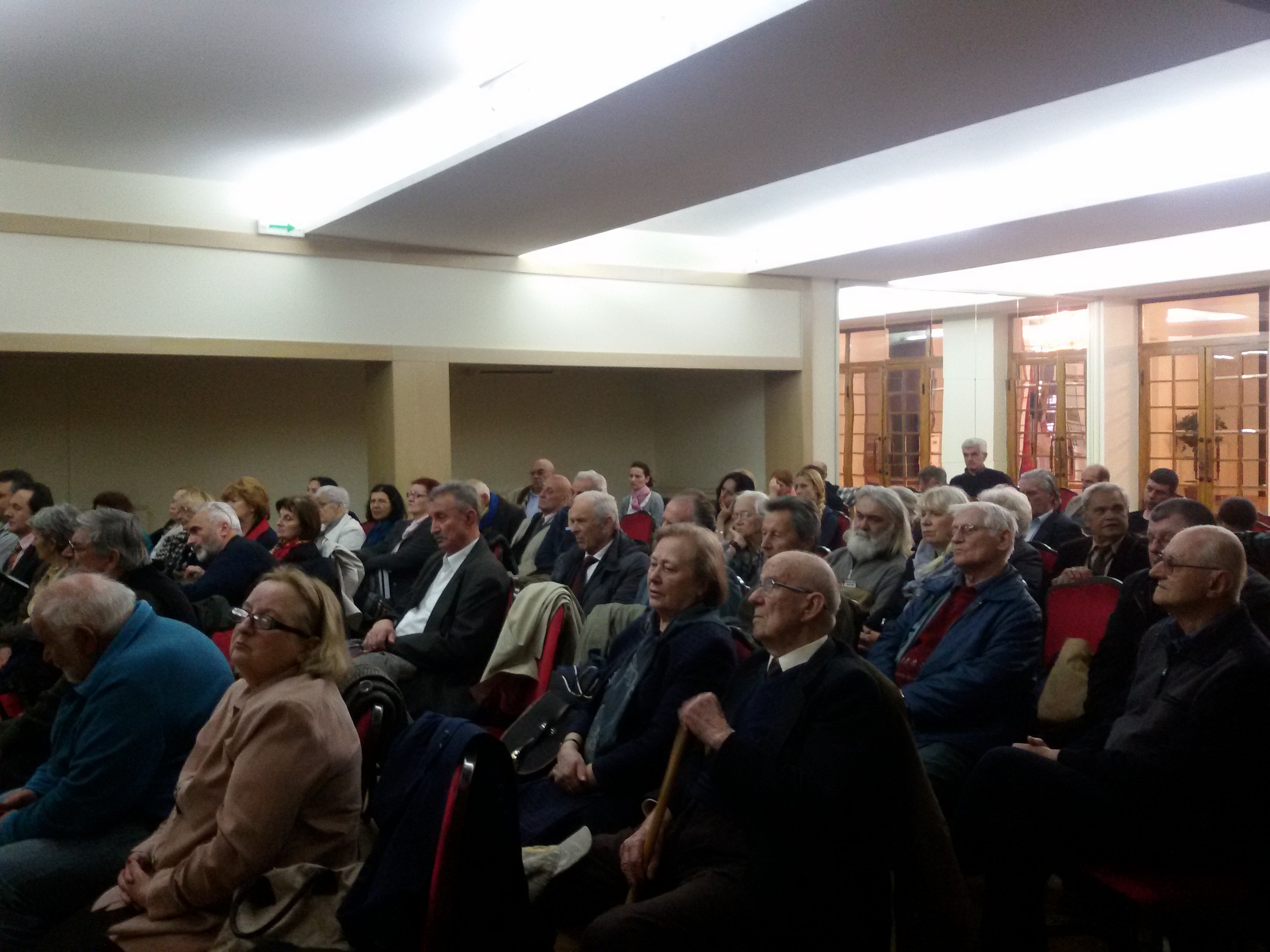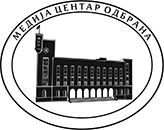05.05.2016
Presentation of the book "Mauthausen Concentration Camp - return undesirable"
 Before a large audience, in the Atrium of the Central Military Club, the monograph "Mauthausen Concentration Camp – return undesirable" by Ljubomir Zecevic, PhD, and Tamara Ciric, has been presented today. It is a result of hard work of the author to present the suffering of the citizens of Serbia and the Serbs from the former Yugoslav Republic as more comprehensively as possible analysing some of the key historical phenomena of the Nazi "new order", primarily a gigantic mechanism of mass terror and destruction.
Before a large audience, in the Atrium of the Central Military Club, the monograph "Mauthausen Concentration Camp – return undesirable" by Ljubomir Zecevic, PhD, and Tamara Ciric, has been presented today. It is a result of hard work of the author to present the suffering of the citizens of Serbia and the Serbs from the former Yugoslav Republic as more comprehensively as possible analysing some of the key historical phenomena of the Nazi "new order", primarily a gigantic mechanism of mass terror and destruction.Speaking about the book from the perspective of a reviewer, Venceslav Glisic, PhD, a former Research Fellow at the Institute for Contemporary History, pointed out that this book, in relation to the others – of the same or similar topics "is distinguished for fitting the history of the camp in the wider framework of the criminal system of Nazi Germany, in which the "SS" organization was responsible for mass crimes against Jews, Roma, Slavs and other nations, especially the destruction of prisoners in the concentration camps".
 Doctor Milan Koljanin, senior research fellow at the Institute for Contemporary History, explained the role of the Penal camp of Mauthausen in the war industry of Germany during the Second World War, which was a direct connection with the realisation of German plans for domination in Europe.
Doctor Milan Koljanin, senior research fellow at the Institute for Contemporary History, explained the role of the Penal camp of Mauthausen in the war industry of Germany during the Second World War, which was a direct connection with the realisation of German plans for domination in Europe.- This book returns again to the public the topic of mass internment, mass destruction of human lives, to achieve the so-called higher goals, in fact the goals of Nazi Germany to dominate Europe and its far-reaching plans. It is important that such a book helps us to understand that the German war efforts and the efforts of its war industry simply sucked human and material resources of the occupied countries, including Yugoslavia and Serbia, in order to achieve these goals of it. Germany's war industry, despite the massive and increasingly frequent bombing by allies, managed during the war to double its capacity and its production and thanks to slave labour of tens of thousands of prisoners who had practical value only when they could work.
 Tamara Ciric, on behalf of the author, pointed out that the most important was the work on the lists but not to determine the number of citizens who were in Mauthausen, but to restore the dignity to victims which was taken from them.
Tamara Ciric, on behalf of the author, pointed out that the most important was the work on the lists but not to determine the number of citizens who were in Mauthausen, but to restore the dignity to victims which was taken from them.- Thanks to the three-year work on writing the book, cooperation was established with the Mauthausen Memorial and the Museum at Ebenezer, with whom we exchanged information about our prisoners. In ten days, the book will be promoted, which was translated into German and English. There is also an on-line version, and for the first time after the Second World War, our victims' names will be written in Cyrillic as they are written in reality. In addition to the book, this is an important result of our work.
After the presentation of the book, the audience was shown a video interview of the surviving prisoner of the camp, Dusan Stojiljkovic, conducted by Tamara Ciric and Radoslav Moskovljic.

